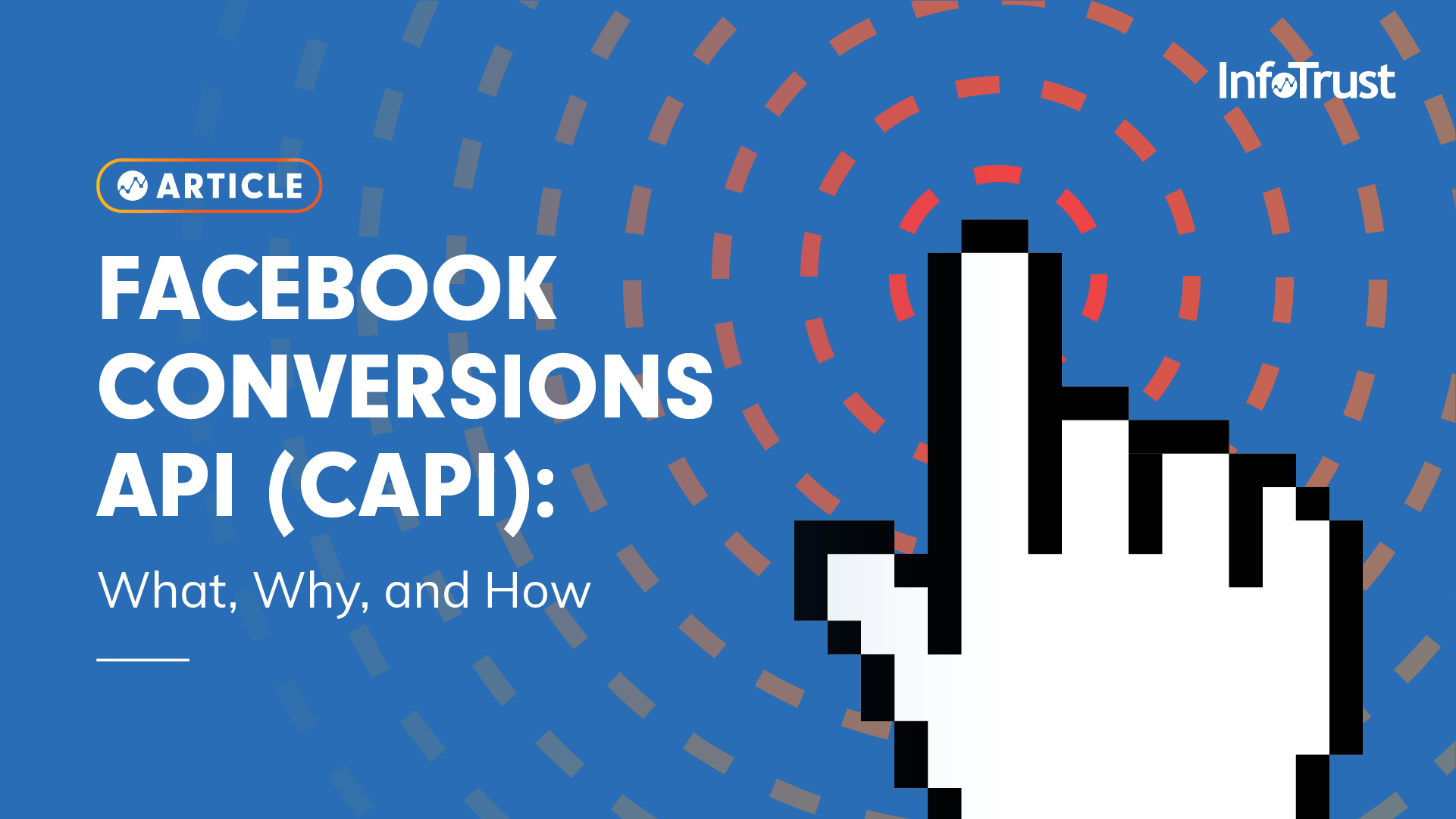Facebook (aka Meta) is one of the most common platforms implemented via tag management platforms. And until recently, the client side “pixel” has been sufficient for most organizations’ advertising needs. With ever-evolving privacy landscape and browser changes, Facebook and other platforms are beginning to push their advertisers to implement more robust data collection using server technologies. These additional data collection strategies are an effort to increase durability of attribution and conversion reporting despite browser restrictions. For Facebook, this solution is called the Conversions API, more affectionately known as CAPI.
What Is CAPI?
Facebook defines CAPI as “The Conversions API allows advertisers to send web events from their servers directly to Facebook. Server events are linked to a pixel and are processed like browser pixel events. This means that server events are used in measurement, reporting, and optimization in the same way as browser pixel events.”
In addition to installing the browser pixel and initiating events through your client-side tag management platform, the Conversions API is intended to live on the server-side of your website and send the same events to your pixel. This mirrored implementation allows for more reliable tracking of events than just client-side which is subject to things like ad blocking and cookie restrictions. To ensure duplicate metrics are not reported, an event ID is sent with both client-side and server-side events for deduplication.
Note: Server-side tracking should never be used to circumvent a user’s privacy consent selection or ignore applicable privacy regulations. Always consult your legal counsel to determine the best way to collect user and behavioral data.
Why Implement CAPI?
Recent restrictions around browser cookie storage have affected Facebook’s ability to attribute campaigns to conversions. Through the implementation of the Conversions API, this gap of conversion data can be filled in by organizations to help optimize ad targeting and decrease cost per action. As of February 2022, implementation of the Conversions API is required to retain the Conversion Lift Test features.
A beneficial side effect of Facebook campaigning for Conversions API implementation is the opportunity for organizations to start considering server-side data collection strategies. Server-side data collection has many benefits including advanced ways to consistently collect complete and compliant data.
How to Implement?
If server-side tracking is much more reliable than browser events, you may wonder why you need to implement both tracking methods? At this time, there is still attribution functionality that lives within the browser pixel that is necessary and not solely available via the Conversions API.
To get started using the Conversions API on your website, you first need to determine the best implementation method. Facebook currently offers four methods for implementation:
- Commerce platform partner integrations (ex: Shopify, WooCommerce, Wix, BigCommerce)
- Conversions API Gateway (self-service cloud hosted)
- Partner platforms (ex: Server-Side Google Tag Manager, Tealium)
- Direct integration via website code
Based on your organization’s technical stack, one of these options will be most suited to your existing environment.
Final Thoughts
The advertising and tag management spaces have historically been areas where limited technical support is needed for effective campaign tracking. As the industry places more focus on user privacy, there is an increased need to better understand the technical limitations and potentially implement different solutions to retain measurement capabilities. Infotrust is a leader in all-things analytics and data privacy—and is here to help.



